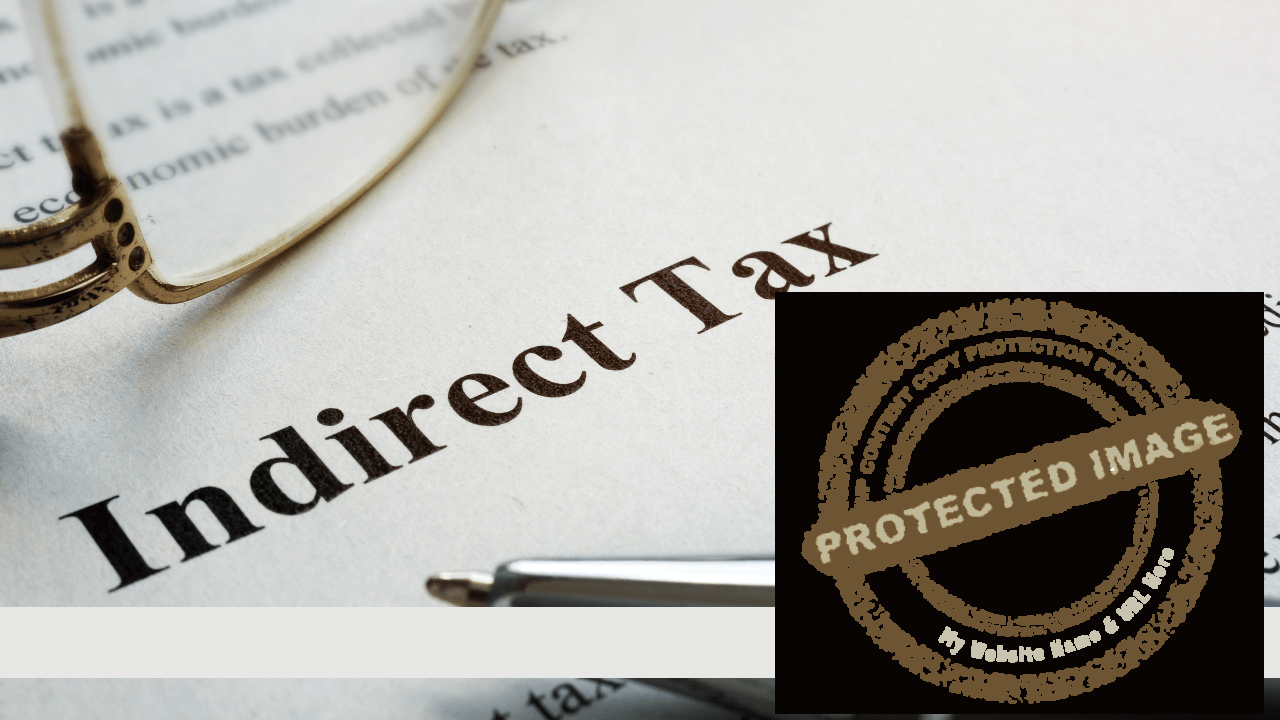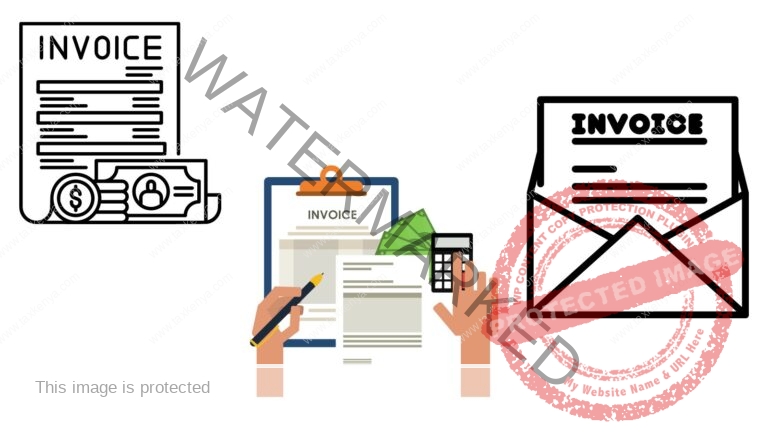This post is on indirect taxes and the government. Governments have a choice to either levy direct or indirect taxes. In levying direct taxes, the impact and the incidence of the tax are on the same person. This implies that the person who is subject to tax pays it.
a. Affiliate Disclosure: These are affiliate links from which we receive a commission at no cost. Read full Affiliate marketing disclosure HERE.
b. Tax Contents Disclaimer: The tax industry in Kenya is very dynamic. The tax contents in the posts are not professional advice. Read full disclosure HERE.
However, the impact of tax and the incidence of tax are not on the same person in indirect taxes. As a result, the person who is subject to the tax is the one who pays it. Therefore, governments may choose to levy direct taxes, indirect taxes, or a mixture of both. This post is about indirect taxes as a tax choice by the government.
What is indirect tax?
An indirect tax is a tax that is imposed on one person but paid partly or wholly by another person. It is demanded from one person on whom it is not imposed. The person on whom it is demanded must collect from the person on whom it is imposed.
This means that the person from whom the tax is demanded collects the tax on behalf of the government and remits the tax on behalf of the person it is imposed on to the government. Examples of indirect taxes are consumption taxes such as value-added tax and excise tax.
The tax is collected on an agency basis, where registered taxpayers are required to collect the tax from the taxpayer and remit it to the government. For example, in the case of VAT, a registered taxpayer collects the VAT from clients and customers and remits the same to the government after deducting the VAT they had paid to inform them of VAT on purchases.
Examples of indirect taxes
There are many types of indirect taxes. However, the following are some examples of indirect taxes:
- Value-added taxes
- Excise taxes.
- Sales taxes

What are the advantages of indirect taxes for the government?
For the government, indirect taxes have several advantages and disadvantages. The following are some of the advantages of indirect taxes for the government:
a. Wide scope
Indirect taxes can put everyone in the tax net, irrespective of whether they are in the high, middle, or lower social strata of society. For example, VAT on potato chips in a restaurant is payable by everyone who desires to consume the food, from corporate chiefs to the street boy.
Indirect taxes are levied on basically all goods and services, with a few exceptions. The taxes are levied on such goods and services as comfort goods (e.g., alcohol, wines, cigarettes) and services and necessities (foods, bottled water).
b. Flexible not fixed
The majority of indirect tax rates are not fixed but flexible. Governments have leeway to increase or decrease the tax rates and the scope covered by the taxes depending on the prevailing economic, political, and social situations. The governments also consider the economic requirements of the country, such as tax revenue and the management of inflation, before changing the tax rates and tax scope.
c. Economical to collect
Appointed taxpayers are responsible for collecting indirect taxes on behalf of the government. The collection of indirect taxes involves low costs since they are collected on an agency basis. The appointed taxpayers have the responsibility to collect the taxes along the supply chain. The government does not pay the taxpayers to collect the taxes. Collecting taxes on behalf of the government is considered a national duty.
d. Greater coverage
Governments use indirect taxes to widen the tax base in the country. This is so that a variety of goods and services that the nation’s citizens consume can be subject to indirect taxes. This widespread coverage ensures that many people are in the tax net. The coverage also assures the government a continued and sufficient supply of tax revenues.
e. Reduction of tax evasion opportunities
Since indirect taxes are included in the price of the goods or services, consumers do not have the leeway to negotiate the taxes in the prices of the goods or services. This makes it difficult for taxpayers to evade taxes on goods and services. For example, a smoker does not have the opportunity to negotiate the excise duty on the price of a packet of cigarettes.
f. Controls consumption of harmful products
Taxes are often used to control the consumption of specific goods that the government deems harmful to consumers or the environment. For example, goods such as alcoholic beverages (beers, wines) and cigarettes are subjected to punitive excise taxes because they are considered harmful to the health of citizens.
Besides, plastic products are subject to high excise tax rates because of their negative impact on the environment. The indirect taxes that are imposed on these goods and services increase the prices of the goods and services. The government hopes that the price increase will deter consumption of the goods and services.
g. Protection of domestic economy
Every government has the mandate to protect the domestic economy from interference from outside economic, social, and political forces through the dumping of cheap products and services. Governments impose indirect taxes for domestic economic management.
The government can increase or decrease the taxes depending on the level of protection desired. For example, very high excise taxes are levied on the importation of certain products, such as manufactured sugar, to protect the local sugar industry. Hence, indirect taxes are effective tools for domestic economic management.
This section discussed some of the advantages of indirect taxes for the government. However, indirect taxes also have disadvantages for the government.

What are the disadvantages of indirect taxes for the government?
There are several disadvantages of indirect taxes to the government that may result in the government collecting less than anticipated tax revenue and make tax collection difficult. The following are some of the disadvantages of indirect taxes for the government:
a. It is not possible to estimate its effects
There is uncertainty in estimating the effects of indirect taxes on the demand for goods and services. For example, when excise taxes are imposed on the price of alcoholic drinks, the prices increase. The consumption of those particular alcoholic drinks will go down. However, the overall consumption of alcoholic drinks does not go down. people continue drinking.
Due to the high cost of alcoholic beverages, consumers frequently look for cheaper options made by companies that do not impose any taxes. This eventually affects tax collection. Therefore, it is not possible to estimate the effect of levying indirect taxes.
b. Uneconomical to collect
Sometimes, the cost of collecting indirect taxes is high. Since indirect taxes are levied along the supply chain, collecting the tax from every consumer is uneconomical. Besides, collecting the tax from the government-appointed agents who collect it from consumers may also be expensive. The government requires tax officers to ensure that the agents are collecting the right amounts of tax and remitting the same to the government on time. This increases the cost of collecting the tax.
c. Negative effects on employment and production
Imposing indirect taxes increases the prices of goods and services. For example, imposing 16% VAT increases the price of the good or service by 16% or more. However, when the prices of the goods or services increase, the demand for the goods or services will decrease. This will harm the production of goods or services. The reduced demand for goods and services will negatively affect employment and production.
d. Inflation spiral-overs
When indirect taxes are imposed, the prices of goods and services will increase. This will result in higher production costs because the prices of the raw materials will increase. The cost of wages and salaries will increase too, since workers will demand increased salaries to cater for the increased costs of goods and services.
The higher wages and salaries will result in higher prices. This price-cost-wage/salary-price movement will set the economy of the country on an inflationary path. Hence, indirect taxes create inflationary pressures in the economy and result in inflationary spiral-overs. This is a disadvantage for the government.
e. Assessment of income
When indirect taxes are levied, it is difficult to make an accurate assessment of the income of all classes of people since the taxes do not impose equal tax burden on all classes of people. Hence, assessing the income of the people is difficult.
f. Negative effect on work and savings
Governments have many responsibilities, among them developing the country. For the government to perform its responsibilities, it requires revenue. There are several sources of government revenue such as direct, indirect taxes and non-tax sources of revenue, both domestic and international.
This post addressed some of the advantages and disadvantages of indirect taxes for the government as the tax-levying body. There are other advantages and disadvantages that were not addressed. A government’s decision on whether to levy a certain type of tax depends on such factors as the tax type’s advantages and disadvantages, the purpose of the tax, and the need for tax revenues.
Feel free to send us questions or topics on tax and investments in Kenya that you would wish to be covered in this Website.
Thank you for reading the article.Send us your feed back.
Details on Contact page.
Dr. Wakaguyu Wa Kiburi.






